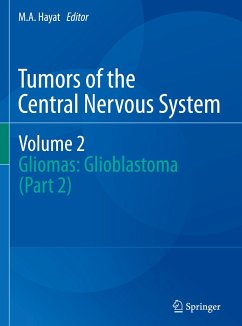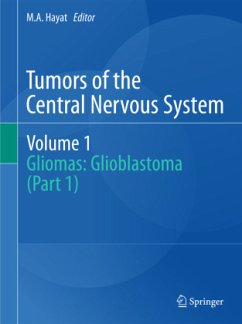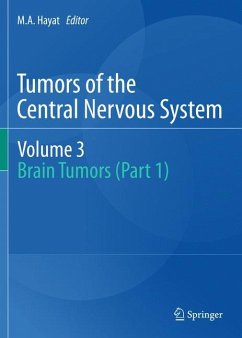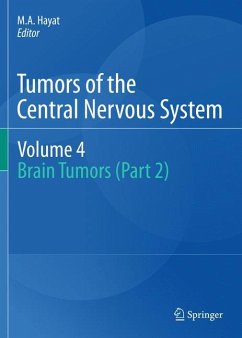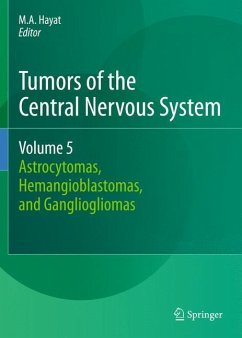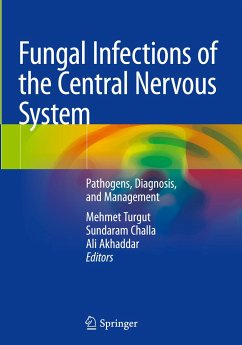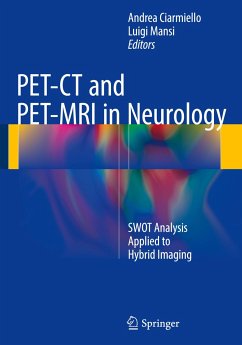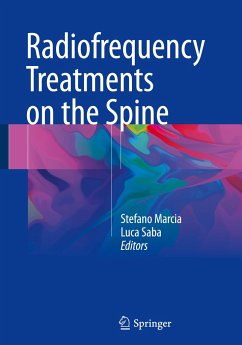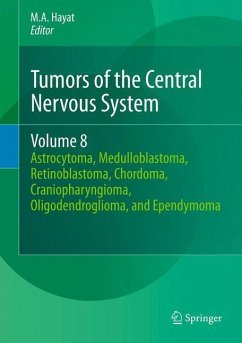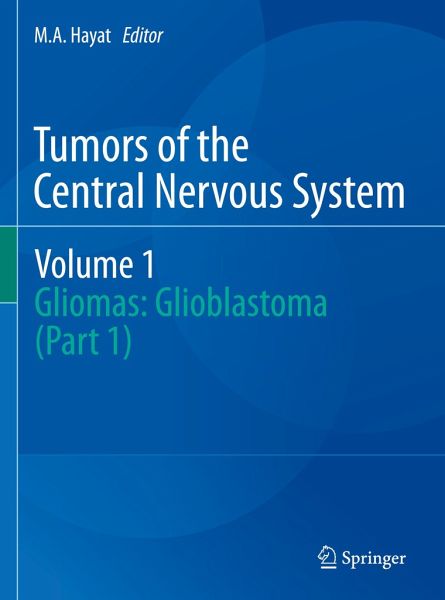
Tumors of the Central Nervous System, Volume 1
Gliomas: Glioblastoma (Part 1)
Herausgegeben: Hayat, M. A.

PAYBACK Punkte
76 °P sammeln!
The most recent developments in diagnostic and therapeutic aspects of Gliomas (Glioblastoma) in the brain are presented. The importance of personalized medicine and clinical validation for targeted therapy are discussed. The identification of various types of biomarkers is included. The identification and validation of brain cancer (glioblastoma) genes are discussed. Role of cancer stem cells in the initiation, progression, and persistence of malignant gliomas is explained. The use of surgical resection, chemotherapy (e.g., temozolomide), immunotherapy, and radiotherapy for malignant glioblast...
The most recent developments in diagnostic and therapeutic aspects of Gliomas (Glioblastoma) in the brain are presented. The importance of personalized medicine and clinical validation for targeted therapy are discussed. The identification of various types of biomarkers is included. The identification and validation of brain cancer (glioblastoma) genes are discussed. Role of cancer stem cells in the initiation, progression, and persistence of malignant gliomas is explained. The use of surgical resection, chemotherapy (e.g., temozolomide), immunotherapy, and radiotherapy for malignant glioblastoma are pointed out. Standard (established) as well as newer imaging modalities (proton magnetic resonance spectroscopy) are discussed.



